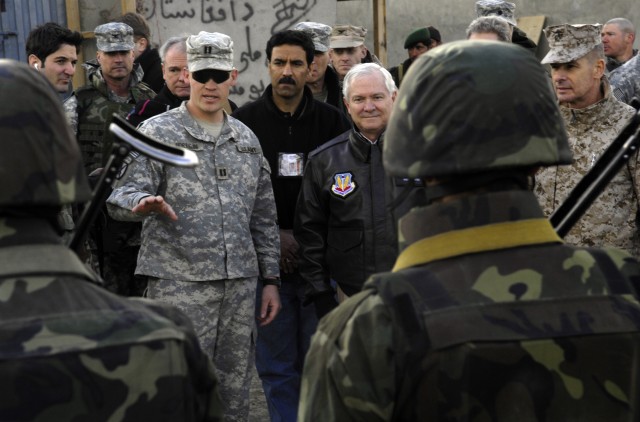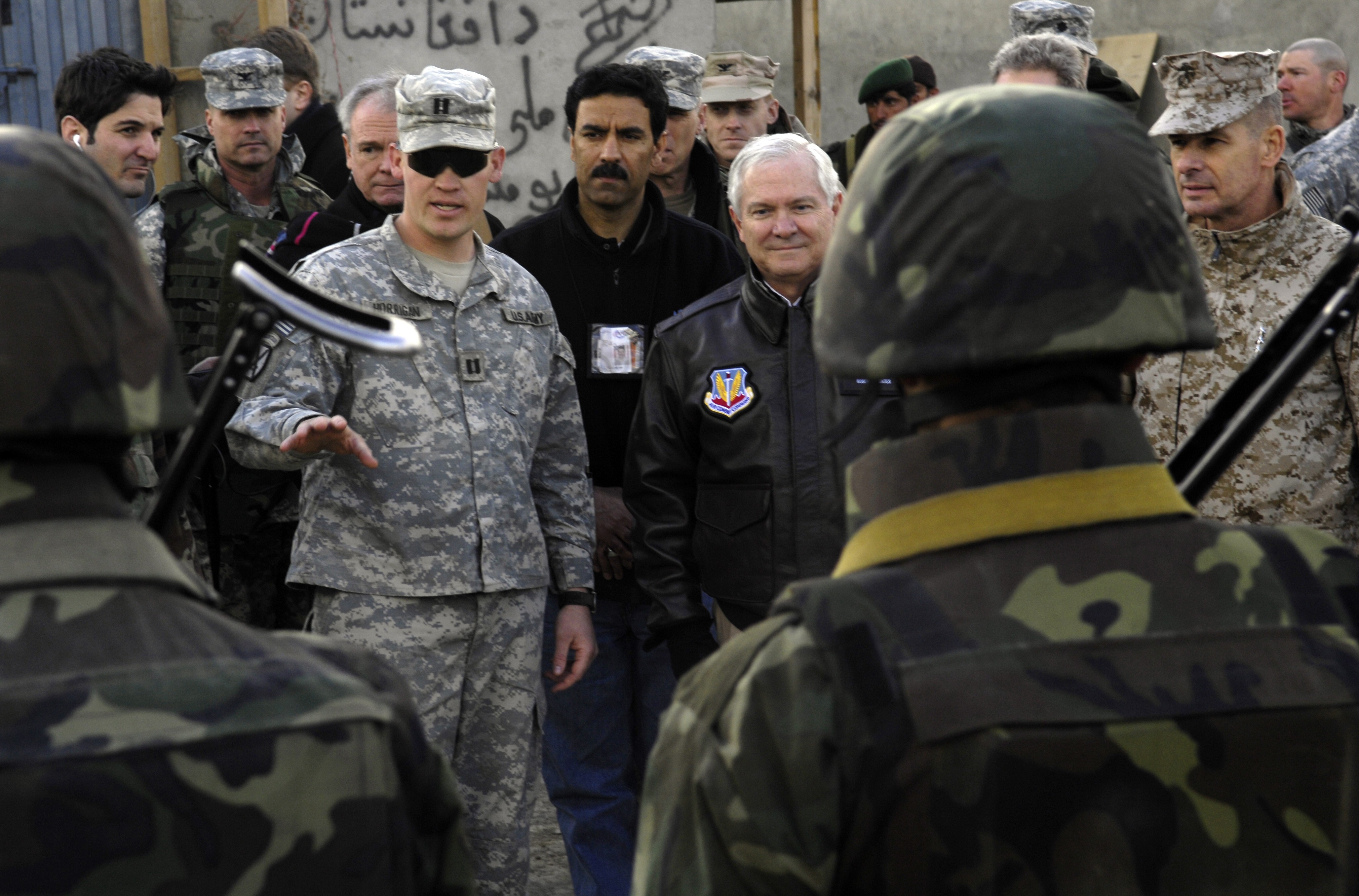KABUL, Afghanistan (American Forces Press Service, Jan. 16, 2007) - The Afghan National Army is making tremendous progress and is a factor on the battlefield, officials here said today. Progress has been slower for the country's national police, however.
Army Lt. Gen. Karl Eikenberry, the commander of Combined Forces Command Afghanistan, said that the progress of the army is truly impressive, particularly given the status of Afghanistan when officials began forming this force in 2002.
Afghanistan had a 20 percent literacy rate, and the country had limited infrastructure and no political structures or army.
"I was here in 2002-2003 when we began this process," Eikenberry said. "I used the expression in 2003 that we, the United States, wanted the Afghan army more than the Afghans did. I came back in 2005, and I was using the expression that we wanted the army about as much as the Afghans did.
"Now I will firmly tell you in 2007 that the Afghans want this army more than we do," he continued. "And that's the critical metric. We can help train an army, we can help equip an army, we can help build facilities for the army, but only the Afghan people can breathe a soul into that army."
The Afghan soldiers are resilient, and they believe in themselves, Eikenberry said. The soldiers believe in Afghanistan and realize they are working for their future.
The progress of Afghan forces is such that U.S. military officials are asking for a much larger commitment from the U.S. government to accelerate the pace of training for the Afghan National Army and to improve the Afghan army's equipment.
Leadership is the core of the Afghan army progress, Eikenberry said. "If you don't have strong leaders and invest in equipment, it won't be maintained; it won't be used correctly," he said. "If you accelerate the growth of the army, and the leadership is poor, the attrition problems cause it to be a poor investment.
"We're confident right now that the Afghan National Army is ready to move faster, and they are certainly ready to go to a higher quality level," he said.
On the police side, the progress has been slower. The government and coalition did not begin a comprehensive approach to improving the police until 2005, he said.
The way forward for the police starts at the top, Eikenberry said, noting that Afghan President Hamid Karzai has announced a thorough reform of senior leadership of the police, many of whom have been fired for corruption.
"We have problems with corruption with the police," Eikenberry said. "We have problems with pay for the police. But we've got some momentum now."


Social Sharing